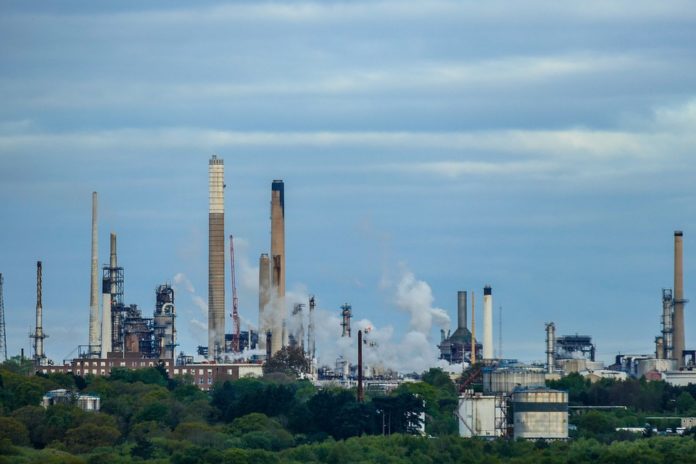New Delhi (NVI): Ten US oil refineries, including six in Texas, released the cancer-causing chemical benzene in concentrations that exceeded federal limits in 2019, according to government data published by the green group Environmental Integrity Project.
The study is based on the first full year of data reported by US refineries since a US Environmental Protection Agency rule was implemented in 2018. The rule requires continuous monitoring of air pollutants around plants to protect nearby communities, many of which are disproportionately poor, black and Hispanic.
“These results highlight refineries that need to do a better job of installing pollution controls and implementing safer workplace practices,” EIP Executive Director Eric Schaeffer said in a statement. “Now, EPA needs to enforce these rules.”
In an emailed statement, the EPA said that “it is important to note that benzene concentration levels monitored at the perimeter of a refinery do not reflect benzene levels in the community.” The agency added that its limits are stringent “in order to provide ample opportunity for early action.”
EPA said it would not comment on ongoing or potential enforcement actions.
Long-term exposure to benzene can cause blood disorders and leukemia, according to the agency.
Monitoring for benzene is meant to be a tool that allows for “early detection of potential problems,” said Ericka Perryman, a spokeswoman for the American Fuel & Petrochemical Manufacturers trade group, in a statement.
But the EPA’s data “is not intended as a measure of community exposure or health risk and could inadvertently provide misleading results to the public,” she added.
According to the report, benzene levels consistently exceeded the EPA standard of 9 micrograms per cubic meter of air at the fencelines of 10 of the more than 100 refineries examined by EIP. The EPA requires facilities that exceed that threshold to take corrective action, the report said.
Philadelphia Energy Solutions’ refinery in Philadelphia recorded the highest benzene concentrations, at nearly five times the EPA standard, the data shows. HollyFrontier Corp’s Navajo Artesia plant in New Mexico followed, with more than three times the federal standard.
Philadelphia Energy shut that refinery and filed for bankruptcy in July after a fire destroyed part of the plant.
Texas was the hardest-hit state, with six refineries exceeding the federal benzene standard, the report said. These are Total SA’s Port Arthur refinery, Chevron Corp’s Pasadena refinery, Flint Hills Resources’ Corpus Christi East refinery, Valero Energy Corp’s Corpus Christi East, Royal Dutch Shell Plc’s Deer Park and Marathon Petroleum Corp’s Galveston Bay, Texas, refinery.
Two other refineries listed are Chevron’s Pascagoula in Mississippi and PBF Energy Inc’s Chalmette Refining in Louisiana.








